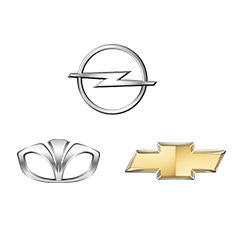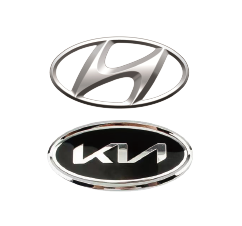"Surcharges or additional charges are those charges which, in addition to the basic rate, are provided for by the ship to compensate for increased expenses or economic losses incurred by the ship in the carriage of goods due to various reasons relating to the ship, the cargo, the port or otherwise, and which are called surcharges or additions. There are many different types of surcharges, and as circumstances change, new surcharges are cancelled or instituted. This article is on the existing more commonly used shipping surcharges slightly collated, I hope to help you better understand the shipping surcharges (lest you be pitched).
01General Rate Increase Surcharge (GRI)
The full name of GRI is General Rate Increase, which is generally used in South American and American routes. Because of the port, ship, fuel, cargo or other reasons, making the shipping company's transport costs increased significantly, the shipowner in order to compensate for these increased expenditures, so the comprehensive rate increase surcharge.
02 Peak Season Surcharge (PSS)
The full name of PSS is Peak Season Surcharge, which is generally in the peak season when the freight is busier, many shipping companies will take the excuse to charge, and China's "Spring Festival" price increases are somewhat similar. The peak season is from April to November every year.
03Emergency Bunker Surcharge (EBS)
The full name is Emergency Bunker Surcharge, meaning Emergency Bunker Surcharge (EBS), which belongs to a surcharge of ocean freight and is generally settled in US dollars like ocean freight. If it is FOB terms, this cost should be borne by the consignee, not the consignor, because EBS is not a FOB local cost. This fee can be paid on arrival or in advance.
EBS is generally in the international crude oil prices climb rapidly, the shipping company feels more than their ability to bear, due to the market is not prosperous and not convenient to timely rise in ocean freight, in order to make up for the rapid rise in the cost of a surcharge, and a temporary increase in a surcharge.
04Terminal Handling Charge (THC)
THC is Terminal Handling Charge, which can be further divided into OTHC-Origin Terminal Handling Charge (OTHC-Origin Terminal Handling Charge) and DTHC-Destination Terminal Handling Charge (DTHC-Destination Terminal Handling Charge).
05Origin Receiving Charge ORC
The full name is Original Receiving Charge (ORC), Local Receiving Charge (LRC), Origin Receiving Charge (ORC), Origin Receiving Charge (ORC). This is a complicated charge, which is both different from and related to THC (Terminal Handling Charge), which is only available at ports in South China, mainly in Guangdong, while THC is available at all ports (including ports in Guangdong), and only one of them is charged for both ORC and THC - if ORC is charged, THC will not be charged again; if THC is charged, ORC will not be charged again. ORC is specifically for ocean routes from ports in South China with destinations in North America, Central and South America, Europe and North Africa. For ports in South China to other destinations such as Southeast Asia, only THC will be levied, just like ports in other regions.06 Port Congestion SurchargePCS
The full name is Port Congestion Surcharge, when the port is congested or particularly busy, the waiting time and the ship's period will be extended, the tugboat fee and other port charges may also increase, which will result in a substantial increase in the cost of transport, in order to make up for the loss of this cost, the shipping company will charge the shipper a port congestion surcharge.
07 Container Imbalance Charge (CIC)
The full name of CIC is Container Imbalance Charge, sometimes called Container Imbalance Surcharge, which is a surcharge imposed by shipping companies to make up for the cost of transferring empty containers due to the imbalance of trade volume or seasonal changes leading to the imbalance of cargo flow and containers.
08 Destination Delivery Charge (DDC)
DDC full name is Destination Delivery Charge, in DDU, DDP and other terms, the cost of the seller / shipper shipper, otherwise by the buyer / consignee consignee to pay. For example, CIF terms - the buyer / consignee to bear the goods in the port of shipment after crossing the ship's side of all the costs and risks, so the port of destination of all the costs, including DDC are borne by the party / consignee.
09HLA (Heavy Lift Overweight Surcharge)
The full name of HLA is Heavy-Lift Additiona, also called Surcharge For Over Weight, which means that the weight of a single piece of cargo exceeds a certain standard (the standard stipulated by different forwarders or shipowners may not be the same), and requires special equipment (such as heavy-duty crane) or special operation (such as the need for padding, reinforcing materials and manual lashing or reinforcement), and the loading and unloading operation is more difficult, or the cargo is not in the same condition as that of the ship. A surcharge to compensate for the increased operating costs of a ship that is more difficult to load or unload, or requires special handling in terms of ship's stowage.
Generally, a load exceeding 2, 3 or 5 tonnes is considered overweight. Overweight surcharge is charged according to the weight, the larger the weight, the higher the surcharge, and if the vessel has to be transferred, it will be charged once for each transfer.
10Currency Appreciation Fee (CAF)
The full name of CAF is Currency Adjustment Factor, also known as CAS-Currency Adjustment Surcharge, when the currency in which the freight is to be charged is significantly devalued, the shipping company will suffer a large loss due to the devaluation of the currency. In order to make up for the loss, the shipowner will pass on the loss to the shipper/cargo owner by adding a Currency Adjustment Surcharge.
11 LLA (Long Length Surcharge)
The full name of LLA is Long Length Additional, also called Over Length Additional or Surcharge For Over Length, which refers to the length of a single piece of cargo exceeding a certain standard (the standard stipulated by different forwarding agents or shipowners may be different), requiring special equipment or special operation, and the loading and unloading operation is more difficult, or in the case of the ship accumulating loads, it is more difficult for the shipper/shipowner to charge a surcharge for over length. or special treatment is required for the accumulation of loads on the ship, in order to make up for the increase in operating costs and charge a surcharge. Generally more than 9 metres is considered to be over length, if the container cargo is generally stipulated to be more than 6 metres is considered to be over length, the rate according to the length of the graded increment.
12Emergency Cost Rating Surcharge (ECRS)
ECRS full name is Emergency Cost Recovery Surcharge, can also be called "bad weather operation surcharge" - for example, bad weather conditions caused by significant increases in the cost of transport and operation of the vessel And so on and so forth, we have to add this fee.
13 Container Service Charge (CSC)
CSC is Container Service Charge, or Container Service Charge.
14 Fuel Adjustment Fee (FAF)
The full name is Fuel Adjustment Factor, generally used in Japanese routes. This surcharge is somewhat similar to the temporary fuel surcharge above - essentially the same, but a different name.
15 Entry Summary Declaration ENS
ENS (Entry Summary Declaration) is the abbreviation of "Entry Summary Declaration", which refers to the European Customs Advance Manifest Rules. Since 1 January 2011, the European Union to (all imports into the EU) or through (all transit goods, all transit goods, all unloaded goods on board, etc.) the EU ports of all freight mandatory implementation of the "Manifest Advance Declaration" rules, the rules apply to all EU member states.
16 Suez Canal Surcharge (SCS)
The full name of SCS is Suez Canal Surcharge, which is basically used to pass through the Suez Canal on the routes from Asia, Oceania, East Africa and other regions to Europe, and the shipping companies need to pay a certain amount of navigational expenses to the canal authorities when the ship passes through the Suez Canal, and the shipowners will collect this cost from their customers in the form of Suez Canal Surcharge.
17 Panama Canal Surcharge PTF
The full name of PTF is Panama Canal Transit Fee, which is the same as Suez Canal Surcharge, and the routes from Far East and the west side of the United States (referred to as the West side of the United States) to the east side of the United States (referred to as the East side of the United States) generally have to pass through Panama Canal, and the shipping companies need to pay a certain amount of navigational charges to the canal authorities when the ships pass through the Panama Canal, and this cost is collected to customers by the shipowners through the Panama Canal surcharges. charged to the customer.
18 DOC
DOC=Document, in forwarding industry, DOC has 2 charges, one is DOC charged by shipping company, fixed charge, charged by RMB. The other one is DOC charged by the destination port, which is also regarded as one of the basic costs of the destination port, and the agent of the destination port is charged according to the US dollar, and the charge of each agent is not the same.
19 Automatic Manifest System Entry Fee AMS
The full name is Automatic Manifest System, Automatic Manifest System Entry Fee. It is used in US-Canada route, unique to the United States - all cargoes to the United States or cargoes transiting through the United States to other countries or regions are subject to AMS declaration (24 hours before loading).AMS is also known as 24-hour Manifest System/US Anti-Terrorism Manifest System.
20 Temporary Additional Risk Charge (TAR)
The full name is Temporary Additional Risks, this fee is a bit inexplicable, in fact, can be simply understood as a war surcharge, or think of it as a war surcharge another way of saying.
21 Automated Manifest System Entry Fee ACI
The full name is Advance Commercial Information, Canada Customs regulations, all goods to Canada or transshipment through Canada to other countries must be loaded 24 hours before the ship to the Canadian Customs declaration, with the United States AMS is very similar.
22 General Rate Increase Surcharge (GRI)
GRI is called General Rate Increase, which is generally used in South American and American routes. Because of the port, ship, fuel, cargo or other reasons, making the shipping company's transport costs increased significantly, the shipowner to compensate for these increased expenses, so the comprehensive rate increase surcharge.
23 Cleaning Charge CC
The full name is Cleaning Charge, also known as cleaning labour costs, sweeping and washing fees. This fee is generally more common in the bulk cargo transport.
24 Fuel Surcharge
Bunker Surcharge (BUNKER SURCHARGE OR BUNKER ADJUSTMENT FACTOR - B.A.F.) is added when the price of fuel rises suddenly.
25 Transhipment Surcharge
TRANSHIPMENT SURCHARGE: Where goods destined for a non-basic port need to be transferred to the port of destination, a surcharge charged by the vessel, which includes the transfer fee and the two-way freight.
26 DIRECT SURCHARGE:
DIRECT ADDITIONAL: When the cargo to the non-basic port reaches a certain volume, the shipping company can arrange for a direct voyage to the port without transferring the ship when the surcharge is added.
27 port surcharge:
PORT ADDITIONAL OR PORT SUECHARGE: The surcharge added by the shipping company in some ports due to poor equipment conditions or low loading and unloading efficiency, as well as other reasons.
28 Port Selection Surcharge:
OPTIONAL SURCHARGE: The cargo consignor can not determine the specific port of discharge in the consignment fashion, and requested to choose a port to discharge the cargo in the two or more ports proposed in advance, the ship's side to add a surcharge.
29 SURCHARGE:
DEVIATION SURCHARGE: A surcharge added by the ship if the ship must make a detour to carry the cargo to the port of destination because the normal shipping lanes are blocked and not passable.
30 change of discharge port surcharge:
ALTERNATIONAL OF DESTINATION CHARGE: A surcharge added by the shipowner if he requests a change of the port or harbour in which the goods were originally destined and the shipowner agrees to such a change with the permission of the relevant authorities (e.g. Customs).




